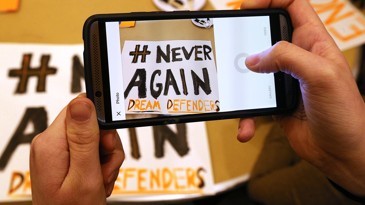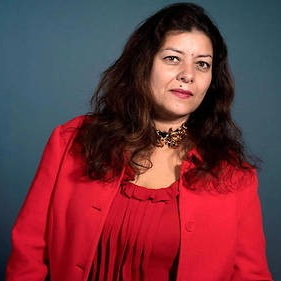Marie Alardot
This blog post was produced as part of the course “Social Media, Ideologies, and Ethics in the United States” at the University of Turku.
Protests have been around for a long time, but with the arrival of social media, activism has changed. How can social media support activism? How has social media changed activism? Has the impact been positive or negative?
Positive Aspects
In my opinion, social media can support activism in a positive way. Thanks to social media, activist groups can reach a worldwide audience in an easy, cheap, and fast way. Online digital platforms make it easier to persuade and influence others. Social media connects people and gathers them together.
In her article, “Media Literacy: The 5 Key Concepts,” Stacey Goodman said: “We are no longer just consumers of media, but content creators and distributors, as well as editors, opinion makers, and journalists.” I agree with her. Social media gives a voice to everyone, including minorities. It is a tool that is easily accessible.
Moreover, social media enables movements to grow and reinforce themselves. For example, after the mass shooting in Parkland, Florida, students organized a demonstration called “March for Our Lives” and, thanks to Twitter, the movement spread widely.

Another example is the #MeToo movement which, again through Twitter, has had a significant worldwide impact. It also helped spark another movement: #balancetonporc, the French version of #MeToo.
Social media can also allow latent movements to reappear very easily. The press is no longer the only one who decides what is important. This way, people can control the information.
Negative Aspects
There can be downsides to social media as well. Let’s look at the concepts of backlash and slacktivism, for instance:

A backlash is a strong negative reaction to an action or development. For example, in the BalanceTonPorc case, Sandra Muller – the journalist who started France’s equivalent of the #MeToo campaign – took to Twitter to speak out against a man she said had harassed her. The man then sued her for defamation, and in the end, Muller was condemned to pay 15,000 euros of compensations. I find it aberrant, but unfortunately, this is what happened.
The term “slacktivism” refers to a soft, weak form of activism created by and present on social media. People share a message on an online platform or “like” a post, and feel proud of themselves. But actually, in my opinion, they could be considered as lazy activists. Social media helps to engage more people but the level of commitment can be lower compared to traditional activism. In this case, social media has a negative impact by increasing disengaged activism.
Lastly, there is not much regulation on social media platforms, and sometimes activist groups can lose control because of disrespectful words or images. However, Twitter has established rules to encourage proper conversation. In my point of view, social media needs to be much more regulated because we can come across shocking and harmful content, which can damage the original cause.
In conclusion, using social media as a platform for activism can have positive and negative outcomes. In my view, social media helps activism. It allows movements to reach a bigger audience faster and cheaper. It enables activist groups to become more influential and have more impact. And most importantly, they give everyone the opportunity to be heard. But we must be careful with our words.
